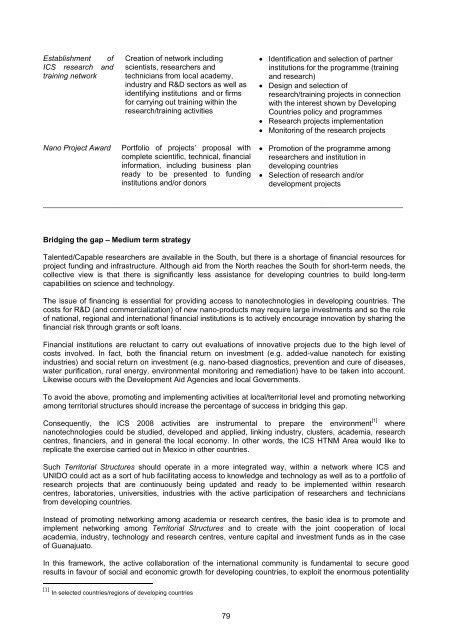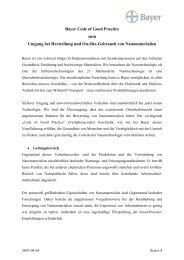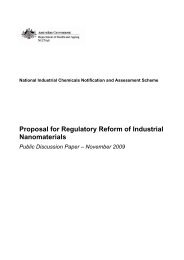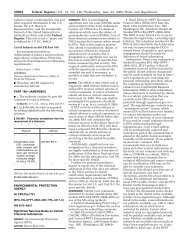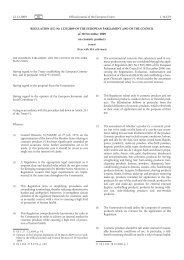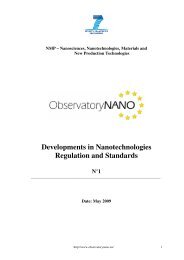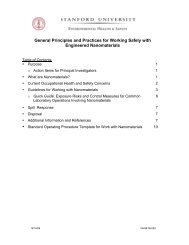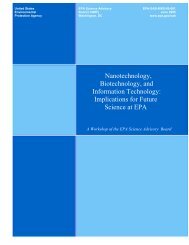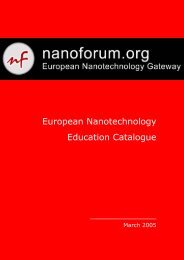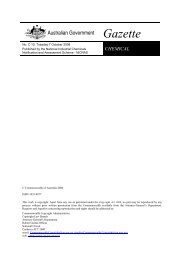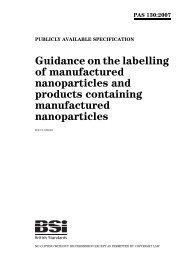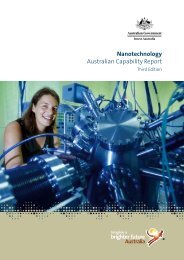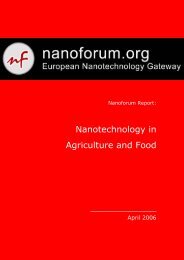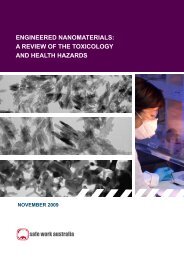Nanotechnology - Nanotech Regulatory Document Archive - Arizona ...
Nanotechnology - Nanotech Regulatory Document Archive - Arizona ...
Nanotechnology - Nanotech Regulatory Document Archive - Arizona ...
Create successful ePaper yourself
Turn your PDF publications into a flip-book with our unique Google optimized e-Paper software.
Establishment of<br />
ICS research and<br />
training network<br />
Nano Project Award<br />
Creation of network including<br />
scientists, researchers and<br />
technicians from local academy,<br />
industry and R&D sectors as well as<br />
identifying institutions and or firms<br />
for carrying out training within the<br />
research/training activities<br />
Portfolio of projects’ proposal with<br />
complete scientific, technical, financial<br />
information, including business plan<br />
ready to be presented to funding<br />
institutions and/or donors<br />
• Identification and selection of partner<br />
institutions for the programme (training<br />
and research)<br />
• Design and selection of<br />
research/training projects in connection<br />
with the interest shown by Developing<br />
Countries policy and programmes<br />
• Research projects implementation<br />
• Monitoring of the research projects<br />
• Promotion of the programme among<br />
researchers and institution in<br />
developing countries<br />
• Selection of research and/or<br />
development projects<br />
_______________________________________________________________________________<br />
Bridging the gap – Medium term strategy<br />
Talented/Capable researchers are available in the South, but there is a shortage of financial resources for<br />
project funding and infrastructure. Although aid from the North reaches the South for short-term needs, the<br />
collective view is that there is significantly less assistance for developing countries to build long-term<br />
capabilities on science and technology.<br />
The issue of financing is essential for providing access to nanotechnologies in developing countries. The<br />
costs for R&D (and commercialization) of new nano-products may require large investments and so the role<br />
of national, regional and international financial institutions is to actively encourage innovation by sharing the<br />
financial risk through grants or soft loans.<br />
Financial institutions are reluctant to carry out evaluations of innovative projects due to the high level of<br />
costs involved. In fact, both the financial return on investment (e.g. added-value nanotech for existing<br />
industries) and social return on investment (e.g. nano-based diagnostics, prevention and cure of diseases,<br />
water purification, rural energy, environmental monitoring and remediation) have to be taken into account.<br />
Likewise occurs with the Development Aid Agencies and local Governments.<br />
To avoid the above, promoting and implementing activities at local/territorial level and promoting networking<br />
among territorial structures should increase the percentage of success in bridging this gap.<br />
Consequently, the ICS 2008 activities are instrumental to prepare the environment [1] where<br />
nanotechnologies could be studied, developed and applied, linking industry, clusters, academia, research<br />
centres, financiers, and in general the local economy. In other words, the ICS HTNM Area would like to<br />
replicate the exercise carried out in Mexico in other countries.<br />
Such Territorial Structures should operate in a more integrated way, within a network where ICS and<br />
UNIDO could act as a sort of hub facilitating access to knowledge and technology as well as to a portfolio of<br />
research projects that are continuously being updated and ready to be implemented within research<br />
centres, laboratories, universities, industries with the active participation of researchers and technicians<br />
from developing countries.<br />
Instead of promoting networking among academia or research centres, the basic idea is to promote and<br />
implement networking among Territorial Structures and to create with the joint cooperation of local<br />
academia, industry, technology and research centres, venture capital and investment funds as in the case<br />
of Guanajuato.<br />
In this framework, the active collaboration of the international community is fundamental to secure good<br />
results in favour of social and economic growth for developing countries, to exploit the enormous potentiality<br />
[1] In selected countries/regions of developing countries<br />
79


